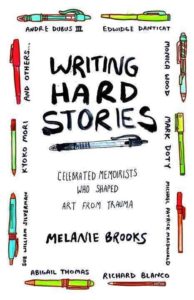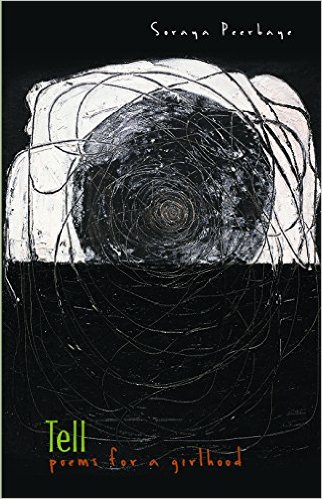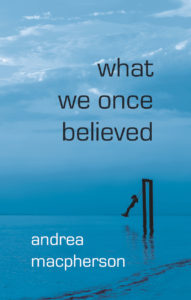 I knew that What We Once Believed (Caitlin Press, 2017) would speak to the feminist-mother in me when I read the epigraph, a poem by Catherine Barnett about mothering the mother and a quote from Muriel Rukeyser that asks: “What would happen if one woman told the truth about her life? The world would split open.”
I knew that What We Once Believed (Caitlin Press, 2017) would speak to the feminist-mother in me when I read the epigraph, a poem by Catherine Barnett about mothering the mother and a quote from Muriel Rukeyser that asks: “What would happen if one woman told the truth about her life? The world would split open.”
What We Once Believed, the latest novel by British Columbia author Andrea MacPherson, provides a glimpse of such consequences—and they are both absorbing and complex.Continue Reading What We Once Believed by Andrea MacPherson

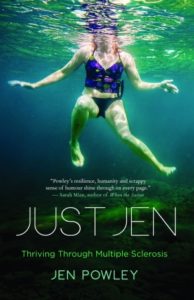 In
In 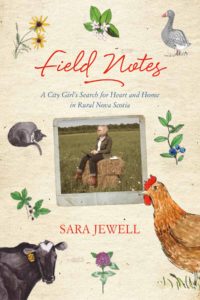 Ever since I met my “Upper Canadian” husband in my hometown of Fredericton at age twenty and moved to southern Ontario at twenty-one, I’ve had a love-hate relationship with the Maritimes, as well as with rural and small-town life in general. At times, I have resented what I saw as its narrowness and stubborn attachment to the past. I can credit Sara Jewell and her
Ever since I met my “Upper Canadian” husband in my hometown of Fredericton at age twenty and moved to southern Ontario at twenty-one, I’ve had a love-hate relationship with the Maritimes, as well as with rural and small-town life in general. At times, I have resented what I saw as its narrowness and stubborn attachment to the past. I can credit Sara Jewell and her 